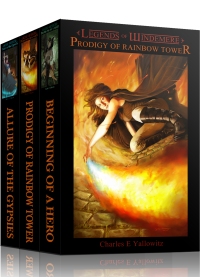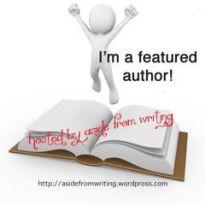
Supernatural
That’s true. I’d heard the word for a long time, but it always went one ear and out the other until it started popping up everywhere. Maybe I’ve had too many of the series I’ve watched come to a close, so I noticed it more. Not sure if most people even know what the word means. Well:
Penultimate- The second to last in a series.
War of Nytefall: Anarchy would be the penultimate book of the series. It certainly feels that way too. I made sure to have all of the loose ends converge into the big headache that’s going to give Clyde his final challenge. This makes it easier to focus on the finale because I’m not trying to jam all of the closures into one volume. Now, I merely have to put a cap on the whole adventure. Don’t worry. Putting caps (some may say lids) on require twisting, so you know it’s not going to be a straight or clean shot.
Let’s see what everyone thinks about this type of volume.
- What do you look for in a penultimate volume of a series?
- Does it help you prepare to say good-bye to the characters?
- What piece of advice would you give for this kind of story?





When I’m reading a series, I don’t really know if the one I’m reading is the penultimate volume or not. I haven’t written a series, so I’m not sure what should go in a penultimate volume. I think your discussion is pretty on target as to what should be in there.
LikeLike
Thanks. I’ve noticed that announcing a penultimate volume isn’t as common as it used to be. Might be more of a sci-fi and fantasy thing.
LikeLiked by 1 person
Could be. 😊
LikeLike
1. I didn’t know the meaning of the word, so I’m glad you defined it. I look for the author to move toward wrapping things up (like moving the hobbits toward Mount Doom). You give good advice here. Depending on the length of the series, there might be several subplots. Maybe one or two of them get resolved before the conclusion. I’ve read several second books of trilogies with cliffhangers so I’ve come to expect those.
2. It does. I can’t help thinking of Sozin’s Comet—the four-part series finale of Avatar and how the characters were positioned in the episodes before the very last episode. We learned of their fears and their resolve. But the series creators knew the ending of the series before the series was greenlit, so knowing how it would end early on probably helped them work toward concluding it well. Also, maybe some characters who disappeared early in the series reappear so we see what will happen to them in the end.
3. Use foreshadowing. Don’t rely on shock value alone to make your conclusion satisfying. Take your time to set it up well. I read a trilogy where everything was quickly wrapped up in the last 50 pages though the book was over a thousand pages. The author seemed to spend more time on the world building than making the conclusion (in my mind) satisfying. I was very disappointed. It made me regret ever starting the series.
If we meet new characters or there are quests, maybe those characters and quests help the series characters move toward a satisfying conclusion (ala the sixth book of the Harry Potter series). But give me something to make me excited for page 1 of the last book (like how the end of The Two Towers [the book] does; and of course Harry Potter and the Half-Blood Prince).
LikeLike
Yeah. That’s a long one.
You make good points, but the big one is something you said for the second question. An author will have an easier time with a penultimate volume if they know what the ending is going to be. So, this could very well be a plotter thing. A pantser might not even realize they’re in the position. That could change how the plot of the book goes too.
LikeLike
Sorry about the long answer. Just realized how long it was. 😬 🙄 😯
LikeLike
I think it’s the one place where a cliffhanger can be successful. I want it exciting enough that I have to read the next one.
LikeLiked by 1 person
Yup. The risk is if it takes too long to release the final volume. I think that’s the danger of announcing a penultimate. You create expectations.
LikeLiked by 1 person
That makes sense to me.
LikeLike
Agreed
LikeLiked by 1 person
1. Many of the minor plot threads being tied up, so it’s clear we’re moving towards the end, but with something left that will make me feel like it’s worth reading the final volume.
2. Not really. When I’ve loved spending time with characters I struggle to say, “Goodbye,” to them regardless of how much I was prepared for it, and if I haven’t then I don’t really care enough to bother with a proper parting.
3. Don’t drag things out too much, but don’t rush them either. Yes, we’re nearly at the end, but let me keep enjoying the ride, and continue to get what I’ve been getting from the previous volumes. Prepare me for the ending without giving so much of it away that there’s no point me bothering to read the final one.
LikeLike
1. Good point. Don’t want to end it all before the finish line.
2. Guess authors need to aim for making readers struggle to say goodbye.
3. Excellent point on finding balancing the speed of events. This might be the one volume where you really need to aim your landing perfectly.
LikeLiked by 1 person
With so many authors writing ongoing series, rather than trilogies, it can be hard to tell it’s the penultimate one. Sometimes the publishers just make a decision, and even the author doesn’t know it’s the penultimate volume?
What I look for in a penultimate is keeping up the energy of the character and plot, with a rising sense of the stakes. “Something is going to blow soon.” I think the author has to really focus on that the series is about, so readers both new and ongoing can feel the tension.
LikeLike
I always hope the author knows they’re near the end. Otherwise, you get a shaky ending with loose ends.
LikeLiked by 1 person